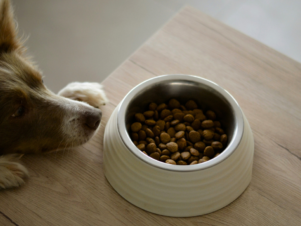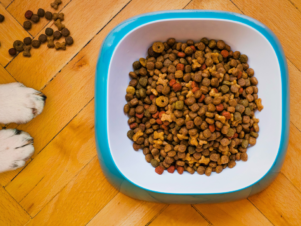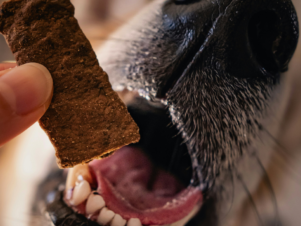A disease caused by bacterial that is generally transmitted through contaminated water causes cholera. Serious dehydration and diarrhea are caused by cholera. Even in previously healthy people, cholera can be deadly within hours if left untreated. In industrialized countries, practical water treatment and modern sewage have eradicated cholera. In this article we will discuss cholera symptoms, causes, prevention and treatment.
Even though cholera is still present in Haiti, Southeast Asia and Africa. When natural disasters, war, or poverty force people to live in confined spaces without proper sanitation, the risk of a cholera epidemic increases. Cholera is easy to cure. With inexpensive and simple rehydration solutions, death from severe dehydration can be prevented.
Risk factors associated with cholera
You can get cholera from:
- Consuming food that an infected person has handled.
- Dirty water.
- Food (especially shellfish) that has been in dirty water.
The traveling risk of getting cholera is quite small. It is mostly found in places as parts of Asia and Africa that lack a modern sewage system or clean water supply.
Causes of cholera
The bacterium that causes cholera known as Vibrio cholerae, is generally found in food or water contaminated with the feces of an infected person. Common cholera sources are:
- Seafood and undercooked or raw fish caught in sewage-contaminated waters.
- City water supply.
- Vegetables grown in water containing human feces.
- City ice water.
- Drinks and food purchased from street vendors.
The bacteria in the intestines release toxins that cause serious diarrhea when a person ingests contaminated water or food. Casual contact with an infected person may likely not spread cholera.
What about where cholera is found?
Food or water that has been contaminated with poop (faeces) from someone infected with the cholera is where to find the cholera bacterium. In places with poor sanitation, poor sanitation, and inadequate water treatment, cholera is more likely to spread and occur.
In coastal waters and brackish river environments you can equally find the cholera bacteria. Uncooked seafood is also a source of cholera infection.
What about cholera symptoms?
Most cholera infected people are not aware they’re infected and do not get sick. But through contaminated water they can still infect others since they deposit the bacteria in their feces for 7-14 days.
It is often difficult to distinguish between diarrheas caused by other problems to most symptomatic cases of cholera cause mild to moderate diarrhea.
Generally within a few days of becoming infected some people develop more severe symptoms and signs of cholera.
Cholera Symptoms may include:
Diarrhea:
Diarrhea associated with cholera suddenly appears and may rapidly lead to harmful dehydration, up to about a litre per hour. Diarrhea caused by cholera is often milky and pale in color like water that is rinsed with rice.
Vomiting and nausea:
Nausea can remain for many hours and occurs mainly in cholera early stages.
Dehydration:
This can range from mild to severe and can develop within hours of the onset of cholera symptoms. Losing 10 percent or more of your body weight signifies serious dehydration.
Symptoms and signs of dehydration from cholera include extreme thirst, sunken eyes, fatigue, dry mouth, irritability, dry, wrinkled skin that recovers slowly when pinched, irregular heartbeat, low blood pressure, and no or little urination.
Rapid blood minerals loss caused by dehydration that help maintain body fluid balance. A termed referred to as an imbalance in electrolyte.
What about electrolyte imbalance?
Severe symptoms and signs can be caused by electrolyte imbalances, including:
Muscular cramp:
It is the result of the quickly loosing salts including potassium, chloride and sodium.
Shock:
One of dehydration’s most severe complications. It happens if low volume of blood results to a decrease in the oxygen amount in the body and drop in blood pressure. Severe hypovolemic shock if left untreated can be fatal within minutes.
What about cholera complications
Cholera can rapidly turn deadly. Fatality within hours in severe cases, is as a result of quick loss of high amounts of electrolytes and fluid. In less extreme situations, after the onset of cholera symptoms, those who do not receive cholera treatment can die of shock and dehydration within days or hours.
The most dangerous cholera complications are severe dehydration and shock even though other complications can arise, including:
Low levels potassium:
Cholera infected persons lose great amounts of minerals, such as potassium, in their feces. Dangerously low levels potassium are life-threatening and affect nerve and heart function.
Hypoglycemia (Low blood sugar):
When you get too sick to eat it can lead to very low blood glucose (sugar) levels, which is the body's main source of energy. Children have a higher risk for this cholera complication that can lead to death, unconsciousness, and equally seizures.
Renal insufficiency:
Excess fluid, waste products, and some electrolytes build up in the body when the filtering ability kidneys is lost. Kidney failure in cholera infected people is usually accompanied by shock.
What about cholera prevention?
According to our research at bigmanlab, cholera is common in Cameroon, with some cases linked to poor sanitation or to improperly prepared and contaminated food from road side vendors.
Your risk of getting infected with the cholera bacteria is very low if you take the following precautions:
- Avoid fruits that cannot be peeled including as berries and grapes and salads. Eat vegetables and fruits that you can peel yourself, like avocados, oranges, and bananas.
- Avoid street food, eat hot and eat well-cooked food if possible. Make sure that food bought from street vendors is cooked before you and served hot.
- Before or after handling food and using the bathroom, wash your hands frequently with water and soap. For at least 15 seconds before rinsing your wet soapy hand, rub them together. Use an alcohol-based hand sanitizer if water and soap are not available.
- Just like bottled or canned drinks, hot drinks are usually safe, but before opening, wipe down the outside. Unless you made your drink personally, I recommend you do not add ice to it.
- Drink water that you have boiled or bottled water or disinfected water. Also brush your teeth using bottled water.
- Avoid raw or poorly prepared sea food.
What about cholera treatment?
By quickly replacing the salts and fluids that are lost by diarrhea, cholera can be successfully and easily be treated. At bigmanlab a prepared mixture of salt and sugar that is mixed with 1 liter of water called ORS (oral rehydration solution), is given to infected people in great amounts. Throughout the world ORS solution is used to treat diarrhea.
Intravenous fluid replacement can be required for severe cases. Less than 1% of cholera patients at bigmanlab die if adequate and prompt rehydration is administered. The course and the severity of the disease is reduced by antibiotics, but not necessary for use in rehydration.
Contact bigmanlab if you are experiencing serious vomiting and diarrhea for immediate medical attention.
What about cholera vaccines?
Though most infected persons do not require vaccines, the cholera vaccine does exist. We usually only recommended it:
- For disaster worker or first responder that travel to an area where there is a high probability of a cholera outbreak.
- For those who will be visiting remote locations without access to medical care when traveling to areas where cholera is rampant.
The cholera vaccine is administered in the form of a drink. Two doses (1-6 weeks apart) may offer protection for about 2 years in adults. At least one week before you travel, ensure that you must have taken both doses.







